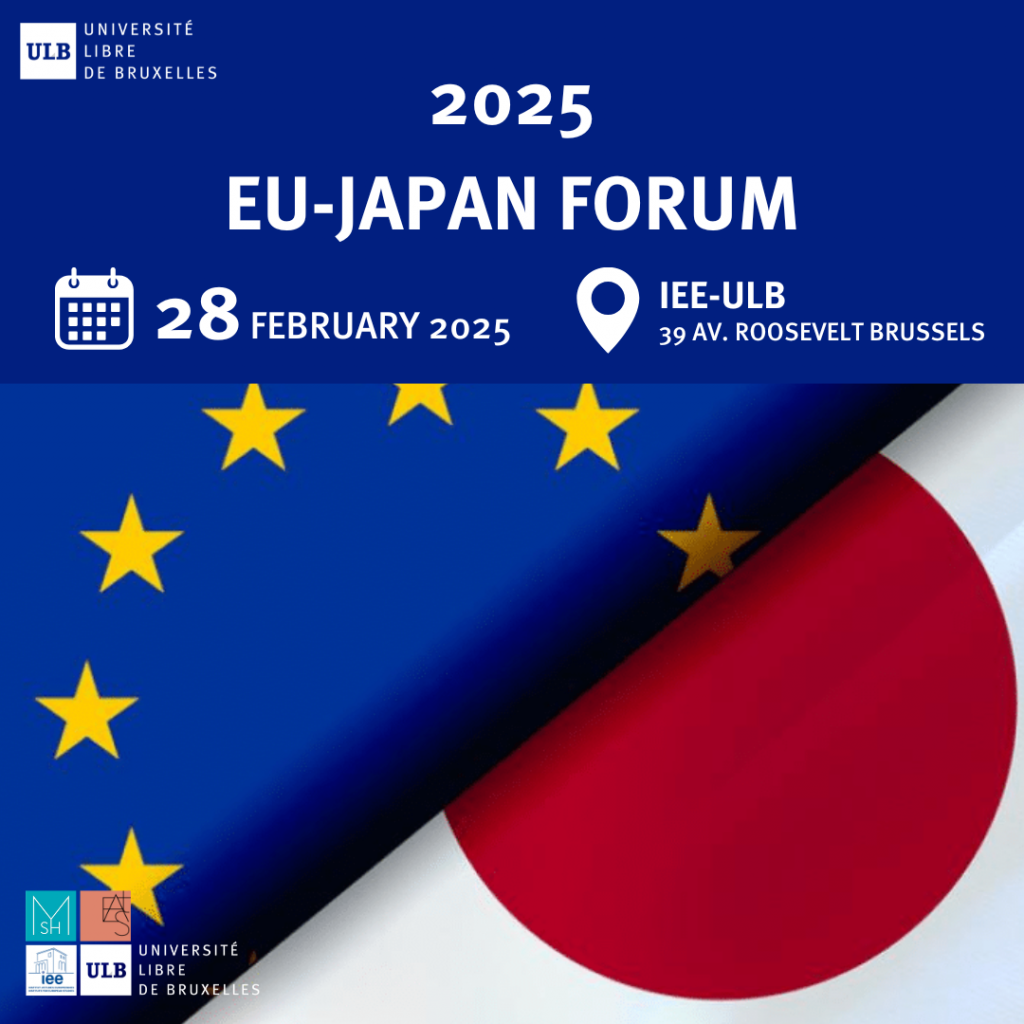Organisé conjointement à Bruxelles par l’Institut d’études européennes (IEE) et le Centre d’études de l’Asie de l’Est (EASt) de l’Université libre de Bruxelles (ULB), le « Forum UE-Japon 2025 » est le dernier d’une série de conférences annuelles sur les affaires Euro-Japonaises co-organisées par l’ULB et l’Université de Waseda.
Cette 25ème édition du forum comprendra à nouveau une série de panels scientifiques. Les thèmes prévus pour les différents panels comprennent:
- Politics and culture inside/out: a new ‘policy-mix’ in Europe and Japan?
The last two decades have seen significant recombinations in the interactions between politics and culture at all levels of governance. A ‘weaponisation’ of culture has been increasingly observed in both external and internal affairs. Meanwhile, political, technocratic and market logics have become so intertwined that they are difficult to separate. Some open questions are: are these phenomena so new? What are the origins, key players and main effects of these developments? Are these trends congruent at the elite and mass levels? Two policy areas are particularly relevant for discussing these developments: higher education and foreign policy.
- EU and Japan Approaches to International Criminal Justice
European countries and Japan have been particularly engaged in international initiatives supporting international criminal justice. Their support for international criminal justice is long-standing, dating back from the aftermath of the Second World War. It was revived in the late 1990s and early 2000s with the efforts leading to the signature of the Rome Statute and UN-conventions on serious and organised crimes. While they share a commitment in favour of international criminal justice, they maintain their distinct approaches.
The book project finds its origins in the ambition to unveil the approaches of Japan and the European Union towards international criminal justice, with a view to pinpoint similarities and/or divergences and their cooperation. One year after the launch of the project, the panel invites selected authors to share their preliminary findings and to exchange their views on tentative
- New approaches and challenges for the post-Fukushima assessment of nuclear risk
Cet évènement se déroulera en présentiel et en distanciel.
